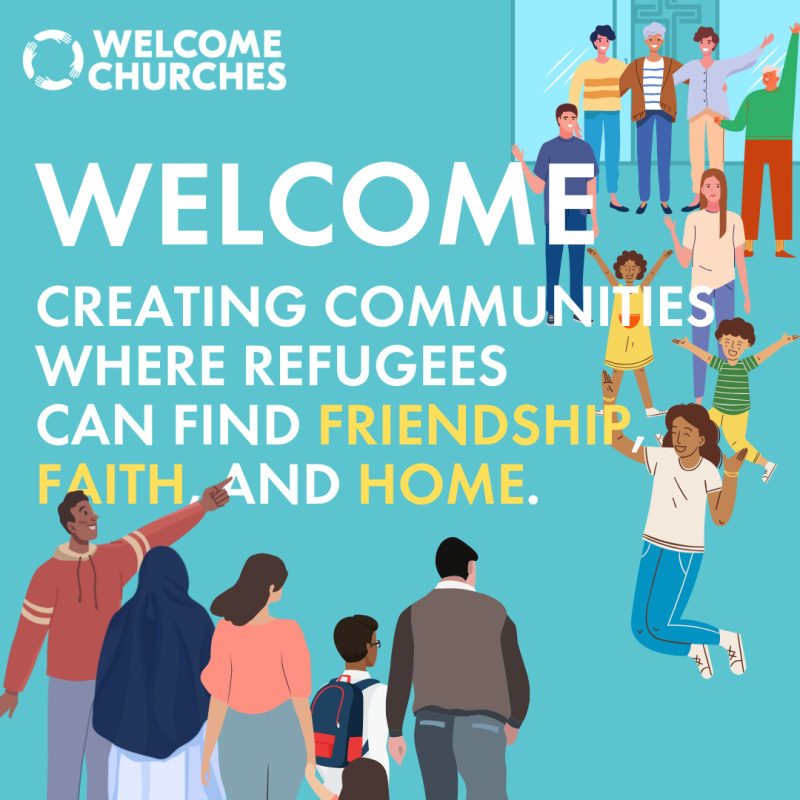At the Joint Public Issues Team (JPIT) 2025 Conference in Derby, Welcome Churches shared its bold vision for a future where every refugee in the UK is within walking distance of a welcoming congregation.
Founded in Derby through the Welcome Boxes project, Welcome Churches has grown into a national network of more than 1,400 churches offering friendship and practical support to refugees and people seeking asylum. Yet, CEO James Lynch told the conference that this number is “not enough.”
“Our vision is that every refugee in the UK is within half a mile of a Welcome Church,” said James. “We want to make sure that wherever a family or individual is moved by the Home Office, there’s already a church nearby ready to give them a warm welcome.”

As the government continues to move asylum seekers to accommodation in new parts of the country, often unexpectedly, Welcome Churches is working to expand its reach into less-connected communities, to ensure that no one feels isolated or forgotten.
Samuel Luak, who leads Welcome Churches’ Church Engagement Team, explained that the organisation not only connects congregations but equips them for the complex and sensitive task of welcoming people who have fled conflict and crisis.
“Welcoming is part of the church’s DNA,” he said. “Managing welcome is the practical part of ministry. Our job is to train, equip, mobilise and resource churches so that welcome is safe, culturally aware, and compassionate.”
Training and resources cover topics such as cross-cultural understanding, trauma awareness, safeguarding, and mental health.
Samuel also spoke movingly about his own experience, which dates back 40 years when, in fleeing war in Sudan, he crossed seven national borders to find safety, describing how the visible journey of migration is only part of the story.
“There is also an inner journey,” he said. “A journey of learning, healing, and resilience. People need a safe space to share that journey; somewhere they feel they belong.”
For that reason, Welcome Churches refers to refugees and asylum seekers simply as “neighbours”.
“They are human beings first,” Samuel explained. “We don’t see them through papers; we see them as people like us. They may arrive as strangers, but they become our neighbours and, in time, friends and family.”
Fatima Tahri, the organisation’s Church Engagement Coordinator, works with churches in the Midlands, the North and in Wales. Fatima outlined how churches can join the network and begin their journey of welcome.
“The first step is simple, and free,” she said. “Churches can sign up online and instantly access our resource hub.”
For congregations wanting to take their involvement further, there is the Welcome Plus programme, which offers coordinator and volunteer training as well as access to specialist resources. These include guidance on trauma and advice for supporting integration and discipleship.
Fatima highlighted how joining the network often transforms local congregations themselves.
“Many churches become more intercultural,” she said. “They discover new gifts, new friendships, and new expressions of faith through the people who join them. It’s a blessing both ways.”
Stories from churches in the network show how welcoming neighbours has reshaped communities. One congregation that began as a majority-white fellowship now counts members from more than 25 different nations.
“Each person brings a different gift,” Fatima said, smiling. “And yes, often that includes amazing food! Shared meals have become a joyful part of our church life.”
James summed up a favourite saying of his: “Meeting without eating is cheating.”
For more information or to join the network, visit www.welcomechurches.org.

